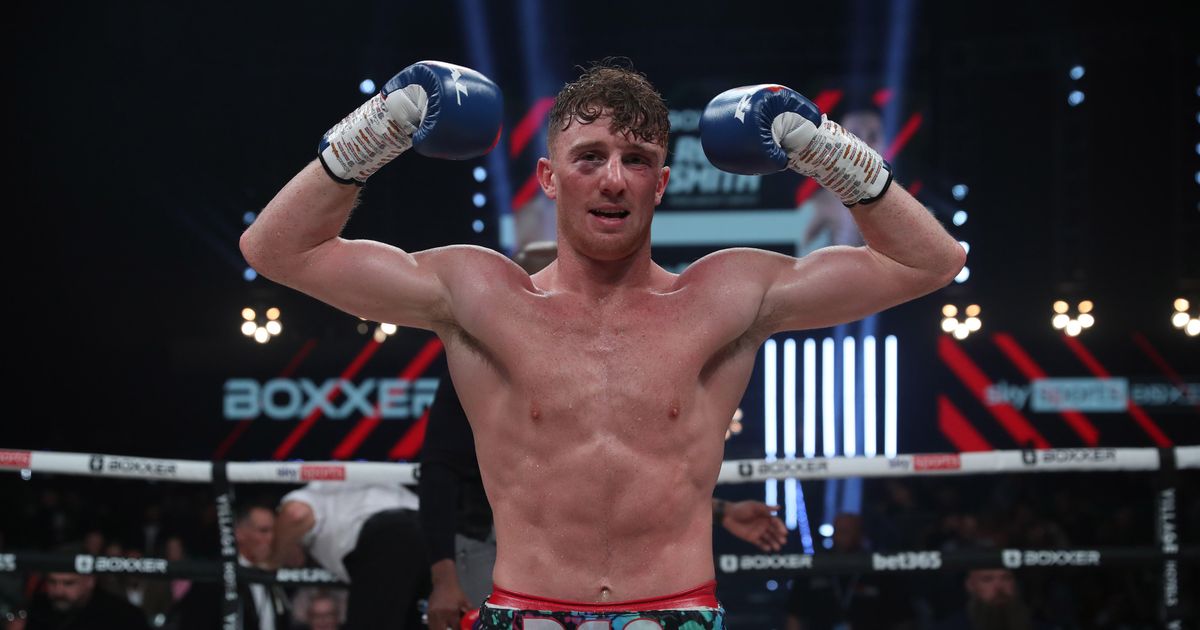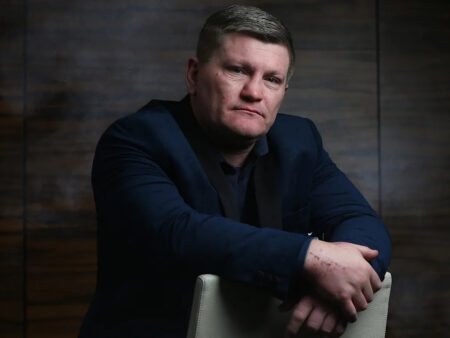
The city of Manchester holds a unique place in the annals of British boxing. It’s a crucible where grit meets glory, where local rivalries aren`t just sporting contests but cultural touchstones. This weekend, another chapter in that rich history is poised to be written, as Bradley Rea steps into the Co-op Live Arena to defend his European light-heavyweight title against the seasoned veteran, Lyndon Arthur. For Rea, this isn`t merely another title defense; it`s the culmination of a decade-long aspiration, a dream born in the very stands he now seeks to conquer.
A Seed of Ambition Planted
Rewind to April 19, 2014. A 16-year-old Bradley Rea was one face in a roaring crowd of thousands, witnessing a battle that would forever resonate within him: Anthony Crolla versus John Murray. It was a clash for Manchester bragging rights, a lightweight slugfest between friends and former sparring partners that epitomized the heart and soul of local boxing. The atmosphere was electric, a city divided, and for young Rea, it was more than just a fight; it was an epiphany.
“One fight which really stuck in my mind when I got offered this was Crolla v Murray and going to it as a fan and being in the crowd and watching,” Rea recounts. “It was different that night. It was a different atmosphere and there was a buzz around the city which was really split down the middle.”
That night, amidst the thunderous cheers and visceral drama, Rea made a silent vow. He wanted to be *that* guy, under *those* lights, in a fight that commanded the city`s attention. Eleven years later, the opportunity has arrived, perhaps sooner than many expected, but perfectly timed for a fighter hitting his stride.
The Ascendant Journey
Rea`s path to this pivotal moment has been one of diligent progression. His self-belief, an unwavering constant, gained significant validation with his breakthrough performance in July, capturing the European title against Shakan Pitters over a grueling 12 rounds. That victory wasn`t just about a belt; it was a powerful statement that opened doors, leading to a coveted promotional deal with Frank Warren`s Queensberry Promotions.
Joining Queensberry placed Rea firmly within one of boxing`s most formidable light-heavyweight stables, alongside names like Joshua Buatsi and Zach Parker, both of whom feature on the same Manchester bill. This alliance wasn`t a surprise for Rea; it was a confirmation of his own conviction.
“It’s nice to have the reassurance that I wasn’t kidding myself,” he admits. “I’ve always believed I’d get to this point and be on these big shows. That win opened so many doors that were closed before.”
At 26, Rea feels a newfound sense of control, a significant shift for a boxer who has spent years chasing opportunities. The ball, he says, is now in his court, a welcome luxury in a demanding sport.
A Veteran`s Challenge and Perceived Complacency
Standing opposite Rea is Lyndon Arthur, 34, a fighter whose resume includes encounters with the likes of Dmitry Bivol and Anthony Yarde. Arthur brings a wealth of experience, a veteran`s composure, and a track record of big-fight appearances, even venturing to Saudi Arabia. Yet, it`s Arthur`s recent comments, subtly questioning whether this fight means more to Rea than it does to him, that have added an intriguing layer of psychological warfare to the contest.
For Rea, this isn`t a casual observation; it`s a potential chink in Arthur`s armor, a perceived hint of complacency. “To me, that’s negativity from him. It’s like he’s overlooking me a little bit,” Rea observes. He understands why Arthur might hold such a view, having known him since his “skinny 16-year-old kid” amateur days. But, as Rea emphatically states, “I’m not that kid anymore.” This sentiment, delivered with a quiet confidence, underscores the personal stakes involved.
The irony, perhaps, is that by even posing the question of who desires victory more, Arthur inadvertently highlights the profound significance this moment holds for Rea. And in boxing, a moment`s oversight can be costly.
The Road Ahead: Legacy and Opportunity
A victory against Lyndon Arthur would catapult Bradley Rea further into the domestic elite, potentially paving the way for further blockbusters within the stacked Queensberry light-heavyweight division and, ultimately, a world title shot. Frank Warren will undoubtedly be observing with keen interest, and Rea is acutely aware that this is his chance to leave an indelible mark, not just another notch on his record.
“I’ve got to make myself stand out somehow,” Rea declares, articulating the competitive drive required at this level. “I’ve got to make Frank sit up and go, ‘Hang on a minute, this kid’s not just making up the numbers. We can really back this kid. We can get him headlining in Manchester one day.’“
In a division teeming with talent, merely winning isn`t enough. It`s about how you win, the statement you make, and the narrative you etch into the minds of fans and promoters alike. For Bradley Rea, the “battle of Manchester” is not just a fight; it’s an audition for destiny, a chance to fulfill a teenage dream, and perhaps, inspire the next generation of Mancunian boxers from the very stands he once occupied.






